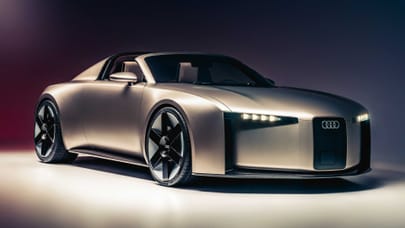
Peugeot/Citroen in talks to buy Opel and Vauxhall
PSA considering potential acquisition from GM. Top Gear investigates
PSA, maker of Peugeot, Citroen and DS, is in talks with GM to buy Opel and Vauxhall. Both sides have issued statements confirming this, but also saying that this outcome isn't inevitable: "There can be no assurance that an agreement will be reached."
So why would PSA buy Opel and Vauxhall? Because if it managed to keep hold of all the combined market share, it'd become the second-biggest car maker in Europe after the VW Group.
Car-company bosses regard bigger as better. The development costs of several differently branded cars can be spread across fewer platforms and engines. And also when buying raw materials and components, the bigger the purchased quantity, the lower the price.
Viewed from the other perspective, it's easy to see why GM might want to be rid of its European arm. It doesn't make any profit in this continent, and hasn't for more than a decade. Its losses were smaller in 2016 than before, but it has said the slide in sterling following the Brexit vote will cost it hundreds of millions this year. So Opel-Vauxhall won't make money in 2017 either.
However, there are strong countervailing factors why the deal might not make enough sense.
For a start, Peugeot would have to be quite sure it isn't buying into the disaster of having to close factories. There are too many plants in Europe. If they aren't operating at full stretch they lose vast sums of money. If Europe's new-car market were to fall (and the economic signs aren't positive at the moment), the new combined entity would be vulnerable. Opel has a huge plant in Germany, where labour costs are scarily high.
For GM, selling its European arm would mean its losing a vast reserve of expertise in designing small engines and cars. That's small in American terms anyway.
The Astra, Mokka X and Insignia (pictured above) are all sold in the US as Buicks. Many other GM cars around the world use engines and other systems designed in Europe.
I suspect the low oil price has pushed GM into looking at this sale. It's making good profits selling big cars and trucks in North America. Its shareholders probably don't think it needs the costly European unit. If the oil price were to spike up, the fuel-efficient European-designed cars and engines would suddenly become more important in GM's American portfolio.
It could be that the new combined European entity could continue designing and building cars to GM in North America. That would give Peugeot the beginnings of a chance to re-enter a country it had to abandon in the days of the 405.
Top Gear
Newsletter
Thank you for subscribing to our newsletter. Look out for your regular round-up of news, reviews and offers in your inbox.
Get all the latest news, reviews and exclusives, direct to your inbox.
GM, incidentally, has a lousy record of indecision about what to do in Europe. At the turn of the century it wanted a merger and bought 20 percent of Fiat in 2000, taking an option to buy the rest. In the end it had to pay Fiat to get out of that agreement. Then in 2009 it felt the need to rid itself of Opel-Vauxhall entirely, because it was being bailed out by the US Government and American voters didn't want to subsidise European car-factory workers. The plan was to sell it to supplier Magna. But at the last minute Detroit decided to hold on to the asset. Now history is repeating.
As to the cars the combined PSA-Opel would sell, well we don't have to guess too hard. The two companies have been working on a joint venture to build a pair of crossovers. They will hit the road this year. In each case there's a pairing of a PSA car and an Opel-Vauxhall car. In each pair, a common platform is used, and a common factory. But they look different, we're assured.
The smaller pair are the Vauxhall Crossland X and the replacement for the Citroen C3 Picasso. Citroen will have a concept version of its car at the Geneva show next month. The Vauxhall won't be at the show, but Opel-Vauxhall boss Karl-Thomas Neumann told Top Gear: "If you see the cars you won't say our car is a re-badged Citroen or the Citroen is a re-badged Vauxhall. There are many unique pressings in the sheetmetal."
The bigger pair are the Peugeot 3008, and an Opel-Vauxhall crossover called Grandland X built on that platform, which we'll see later in 2017.
So if PSA buys Opel-Vauxhall, we can assume that's the sort of thing that'll go on across the ranges. Very much like all those VW sibling brands sharing platforms. And we can assume that because of which company is the buyer and which the bought, the Vauxhalls will be more like Peugeots than the Peugeots will feel like Vauxhalls.
Does that bother you? Do you think we actually need all these mainstream car brands at all? If you work at Vauxhall's Ellesmere Port plant, do you feel more or less secure today? Comments below please.
Trending this week
- Car Review
BMW 1 Series
- Top Gear's Top 9
Nine dreadful bits of 'homeware' made by carmakers








